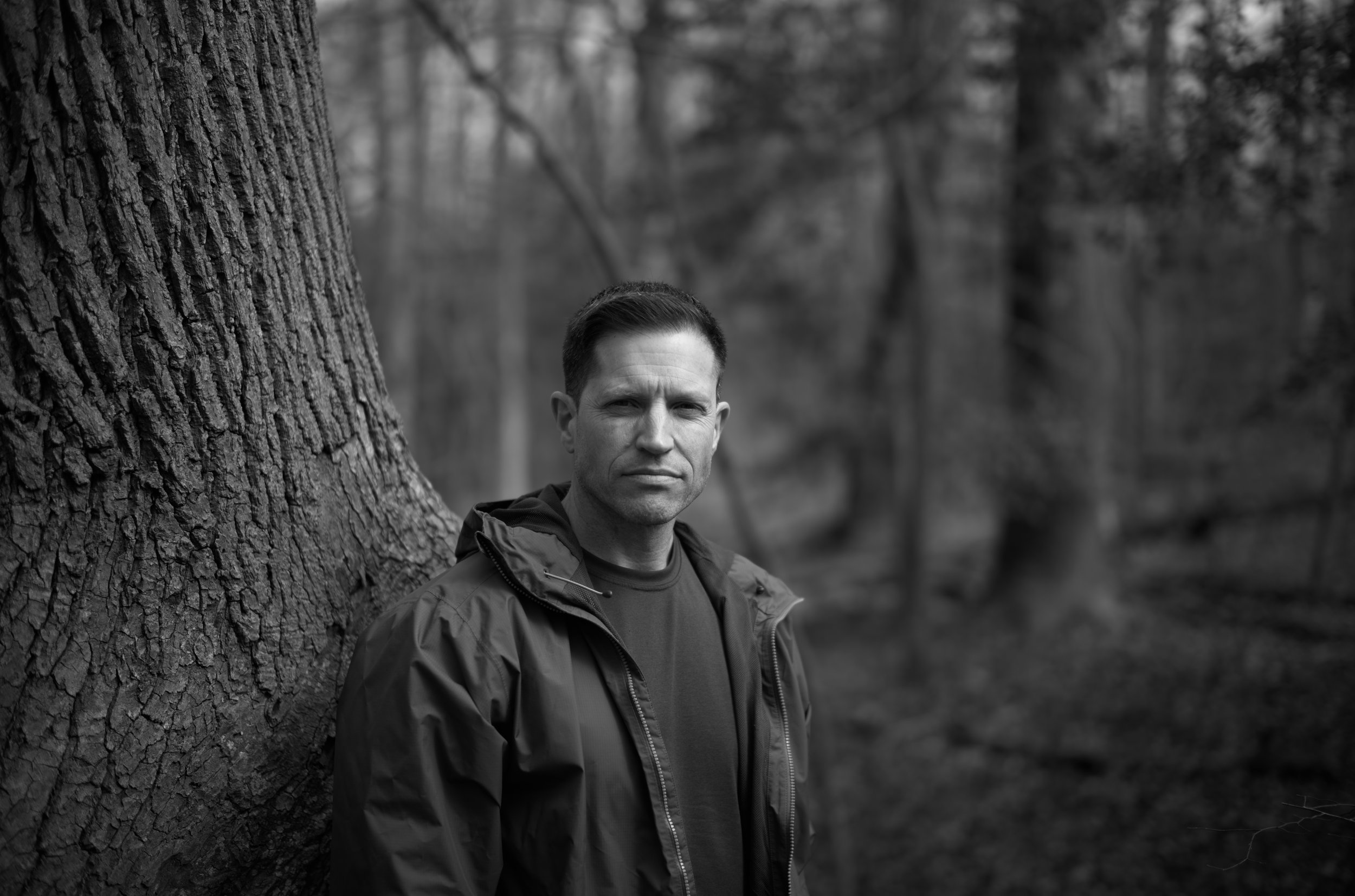By Philip Shucet
Virginia Center for Investigative Journalism at WHRO
Greg Baxter joined the U.S. Marshals Service in 2006. He previously had worked security details in the State Department and the Supreme Court, and guarded U.S. Supreme Court Justice Anthony Kennedy after the terrorist attack on September 11, 2001. Baxter, 50, lives in Herndon, Va.
On September 16, 2013, Baxter was one of the first responders with a team of federal agents at the Washington Navy Yard after civilian contractor Aaron Alexis murdered 12 people in an office building. It changed his life.
This interview has been lightly edited for length and clarity.
—-----------------------------------------------------------------------------
You tell somebody that you work for the Marshals Service, the first thing they say is, ‘Oh, you’re an air marshal.’ And it’s like, no, I’m not an air marshal, I’m a land marshal. It’s different. Then I have to explain to them what I do. I say, ‘Have you ever seen the movie The Fugitive?’ Those who have seen it say, ‘Oh, okay, now I know.’
You see things that a lot of people don't get exposed to, and it definitely gives you a better insight into the way people in general may think, how people may value or not value life.
The things I remember most about that day (September 11, 2001) in D.C. it was a beautiful day, you know, a beautiful, early fall day. Just a gorgeous day. And I remember just walking up First Street from the metro station, up to the Supreme Court building there on First Street.
We had planned some civil disturbance training. And I remember we had a break and I went into our command center room. They had 9/11 showing on the TV, and it had already occurred.The first plane had hit the first World Trade Center building. And at that time everybody thought it was a plane that had just gone off course, or, you know, it was an accident. And as I was going back into the room, the second plane hit.
Five minutes later, one of the sergeants busts in and says, “A plane just hit the Pentagon. We're under attack. Everybody get your gear on and just, you know, get ready for whatever's going on.”
I put on my uniform, go into the command center, a bunch of us, and they make decisions. Look, we're gonna start to evacuate all the justices. They tell me and another guy, “Hey, go down into the basement and get a vehicle. Get prepared to evacuate Justice Kennedy from here, take him home."
We have the radio on one of the news channels and we're just listening to it. There are all these reports of other things that they thought were going on. Armed men here, a truck bomb possibly gone off here.
We’re thinking, look, we're gonna come out of this driveway into the street and it could be bedlam. We could see at the top of the driveway people, cars, you know, just going crazy, because this is Capitol Hill.
I just remember when the justice finally got in the car we went up to the top of the ramp. We both had our guns out in our laps. We don't know what we're gonna find. So of course we get up there and it's just traffic everywhere. People going everywhere. It's just crazy.
So we're trying to work our way through D.C. trying to get our way out to where the justice lives. I remember going down, I guess, Main Avenue, right along the water, and I can see the Pentagon right there just billowing smoke, and that's when you're like, holy smokes.
You're just kind of in a hyper sense of alertness, just making sure no one's gonna come up to you, you know? It took a long time to get outta DC and work our way to the justice's house. He has us come in, so here I am in a Supreme Court justice's kitchen, sitting with him and his wife, and we're watching the towers fall.
I spent two years on an FBI task force and we did investigations into the shooter at the Navy Yard. An individual went into the Navy Yard building and killed10 plus people very brutally. And so going in to investigate right after it happens you're exposed to a lot of traumatic things that you see that you may not be prepared for. It's, it's, you know, it's something in my life that has kind of stayed with me over a long time. Just dealing with death.
There was this sense of obvious dread of what's going on, but then there's also this sense of excitement because these are the kind of things that make the job super exciting, being a part of government, being part of things that are affecting everybody in the country, let alone the world, and just being kind of part of that machine.
And it, it definitely kind of transfers into your normal, everyday non-work life when you have interactions with people and some of the biases that may be implied, some of the cynicism that I may have just in dealing with people I do on a daily basis, non-work related.
I can’t say that I’m walking around thinking about every single thing differently. You’re just presented with some little thing and maybe you approach it in a different way because of something you’ve experienced. You generally think that people are decent, humane, what have you. Just maybe you approach things differently than you did before. It’s just one of those things.
I remember one of my first days at the Marshals Service, had like an old timer there, getting ready to retire. Grizzled guy. I remember him telling me, just be careful. This job, it will change you. It'll change how you think. You know what I mean? It'll just change how you think about people and things like that. And I was like, no, I'm not gonna be like that. You know? I'm pretty level-headed. I'm pretty open-minded.
Looking back on that, I would say that same thing to people. It definitely has an impact.
Working Virginia is a monthly series by Philip Shucet. You can reach him at: Philip (dot) shucet@philipshucet.com. Words and pictures ©️Philip A Shucet.


